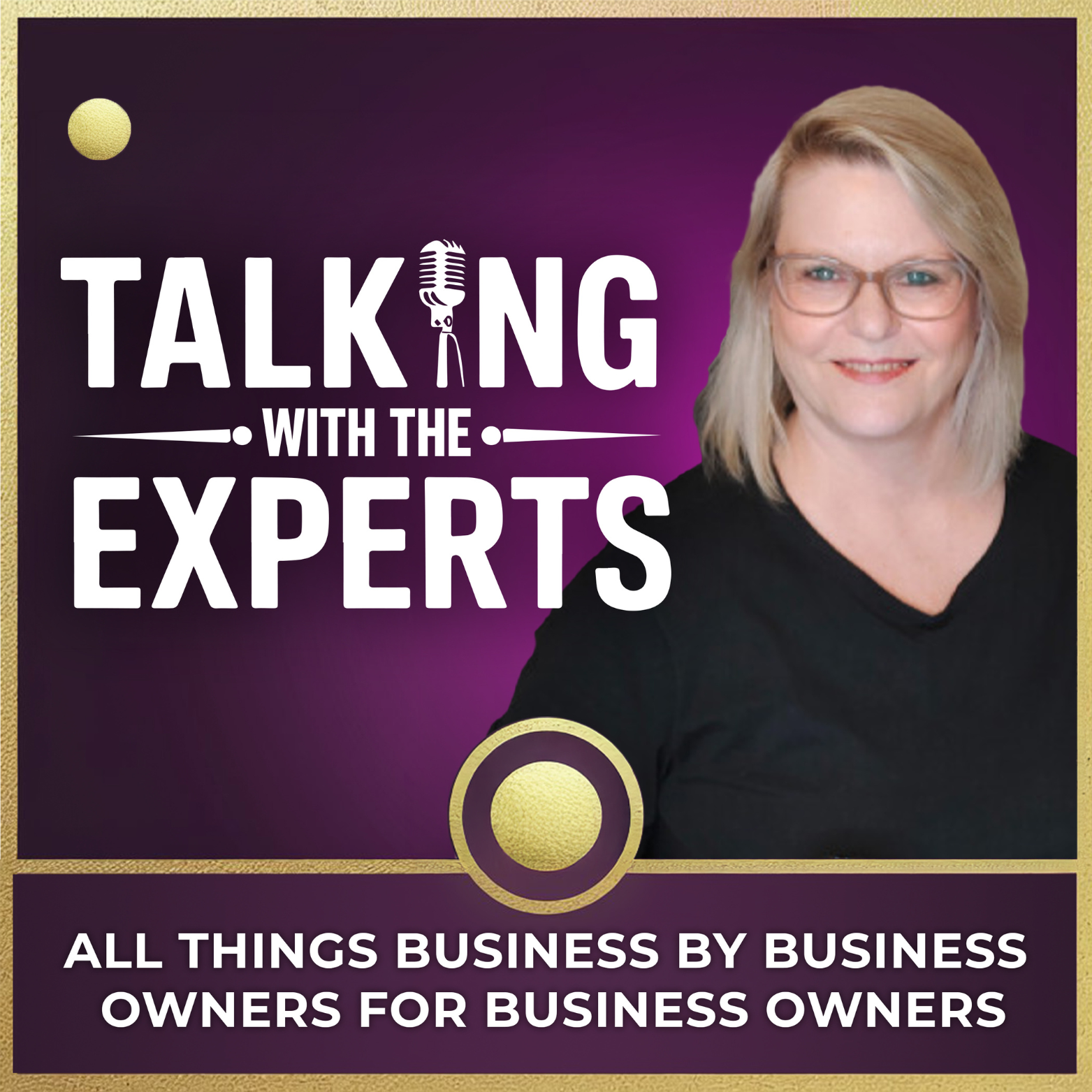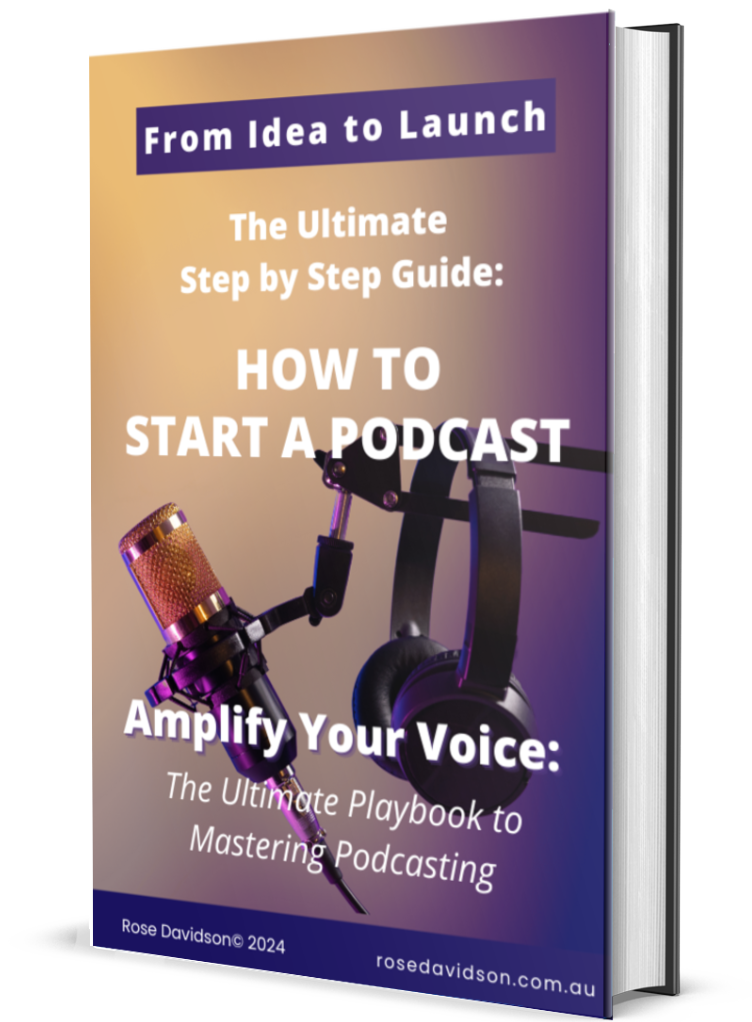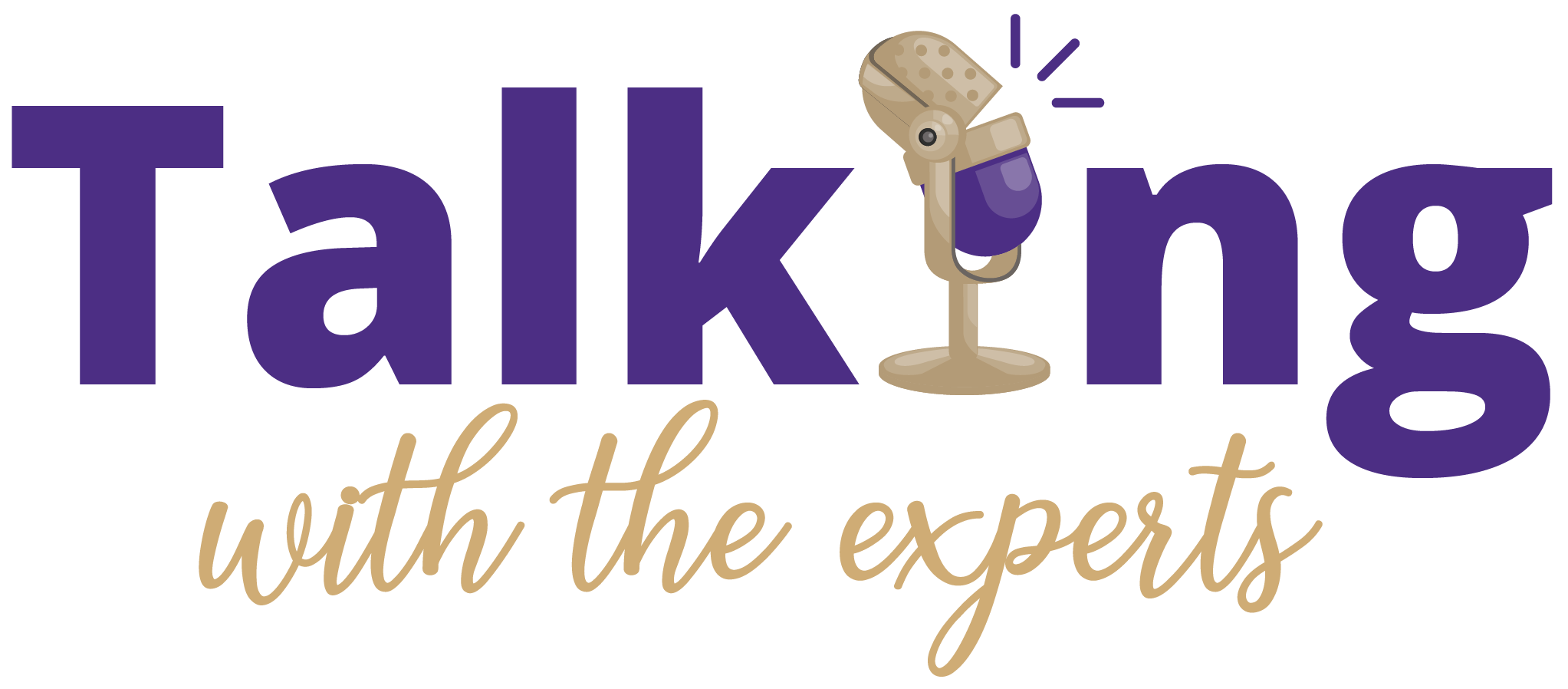Guest
Lauren Clemett
Lauren's Bio
Lauren Clemett is a multi-award-winning personal branding expert and the founder of The Audacious Agency, one of Australia’s leading profile-building and award-writing firms. With over 30 years in brand management and a reputation as a dynamic keynote speaker, Lauren empowers entrepreneurs and business leaders to step into the spotlight with confidence. She specialises in guiding clients through strategic award submissions that not only win—but build a reputation that lasts. Known for her energy, insight, and clarity, Lauren helps business owners overcome imposter syndrome and use awards as a platform for recognition, credibility, and growth. Her message is simple but powerful: visibility isn’t vanity—it’s vital. Whether you’re just starting or scaling up, Lauren helps you be bold, brave, and audacious in telling your story.
Where to find other episodes
About this episode
What if you’re not lacking credibility—just visibility?
In this high-impact episode of Talking with the Experts, Rose Davidson speaks with personal branding expert and award strategist Lauren Clemett about how business awards can do more than decorate a shelf—they can transform your business reputation.
Lauren is the founder of The Audacious Agency and a powerhouse in the profile-building space. She helps entrepreneurs become bold, brave, and audacious when it comes to telling their story, applying for awards, and positioning themselves as leaders in their field.
Inside the episode, you’ll learn:
- Why business awards are more accessible than you think
- How to approach award writing with confidence and clarity
- What to do after the win to amplify your brand for months (or years!) to come
Lauren’s “Bold, Brave & Audacious” method shows that recognition isn’t about ego—it’s about owning your brilliance. You’ll walk away with tangible strategies to submit your first award, use wins for PR and marketing, and finally stand out for all the right reasons.
🎧 Ready to go from unseen to unforgettable? Tune in now and take your brand from hidden gem to headline act.
📌 THREE Key Takeaways:
- Business awards build more than credibility—they open doors to PR, partnerships, and trust.
- Imposter syndrome holds back great leaders—visibility is a strategic necessity.
- Winning is just the beginning—real value comes from leveraging the recognition.
Outline
Common Mindset Barriers to Entering Awards
- Many business owners suffer from imposter syndrome and don’t believe they have achieved enough to be worthy of awards recognition
- The “itty bitty shitty committee” voices in people’s heads tell them their accomplishments aren’t perfect or good enough compared to others
- A successful McDonald’s franchise owner with 12 locations initially doubted whether she had done enough to enter awards despite her remarkable journey from poverty to business success
- People often fall into the trap of “comparisonitis” where they compare themselves unfavorably to other successful individuals and their perceived achievements
Misconceptions About Award Requirements
- Ninety percent of awards available do not require financial information or revenue figures from applicants
- Many people incorrectly assume that awards require massive success metrics like 300% profit increases or 500% growth in business size
- Awards exist for various categories including innovation, startup achievements, thought leadership, community service, charitable works, inventiveness, technology development, and new approaches to existing problems
- The variety of award categories available is much broader than most business owners realize, creating numerous opportunities for recognition
Award Evaluation Criteria and Storytelling Importance
- Fifty percent of award evaluation is based on actual achievements and measurable impact, while the other fifty percent depends on how effectively applicants communicate their story to judges
- Successful award entries require clear explanation of the problem or challenge faced, the actions taken to address it, and the resulting impact or outcomes achieved
- Effective storytelling involves showing judges why the work matters to the applicant and demonstrating the significance of their contributions
- The quality of communication and narrative structure in award applications is equally important as the underlying achievements being presented
Cultural Differences in Self-Promotion and Recognition
- Australia and New Zealand suffer from tall poppy syndrome that discourages people from celebrating their achievements publicly, unlike in America where people proudly display their accomplishments
- American marathon runners wear their medals publicly for weeks after completing races, while Australian runners typically hide their medals immediately after receiving them
- The fear of appearing boastful or egotistical prevents many qualified individuals from entering awards competitions
- Cultural conditioning makes people worry about looking foolish if they don’t win awards rather than focusing on the benefits of participation
Leveraging Awards Beyond Winning
- Award nominees can gain credibility and marketing value even without winning, similar to how Oscar-nominated movies attract audiences regardless of winning status
- Bronze award recognition on wine bottles demonstrates that any level of award recognition provides marketing value to consumers
- The entire awards process from nomination through announcement provides multiple opportunities for business promotion and profile building
- People mistakenly believe that only award winners can legitimately promote their recognition, when nominees and finalists also gain valuable credibility
Strategic Award Selection Process
- Business owners should first clarify their goals for entering awards and determine how they plan to leverage the recognition for business growth
- Award selection should align with the applicant’s business type, target audience, and desired reputation in their industry or market
- Different award categories serve different purposes, from mom entrepreneur awards for side businesses to entrepreneur of the year for established business leaders
- The strategic approach involves choosing awards that will provide maximum leverage for profile building and credibility enhancement rather than simply pursuing any available recognition
Award Application Best Practices
- Successful applicants must carefully read award questions and highlight key phrases to ensure their responses directly address what judges are asking
- Responses should blend engaging personal storytelling with concrete metrics and measurable outcomes that demonstrate impact
- Applications require concise answers that stay focused on the specific question being asked rather than providing irrelevant background information
- The writing process forces applicants to reflect on their achievements and articulate their value proposition clearly and compellingly
Building Confidence for Self-Promotion
- Business owners must recognize that self-promotion is a fundamental responsibility of entrepreneurship since no one else will advocate for their business as effectively
- The mindset shift involves focusing on promoting the impact, innovation, and value created rather than seeking personal glory or recognition
- Awards should be viewed as opportunities to highlight team achievements, business innovations, and positive impact on customers or communities
- Reframing awards as legacy-building activities rather than ego-driven pursuits helps overcome self-promotion anxiety and tall poppy syndrome concerns
Comprehensive Award Journey Marketing Strategy
- Award participants should begin promoting their involvement immediately after submitting applications, sharing the courage required and lessons learned during the preparation process
- Non-finalists can still leverage their participation by sharing proud achievements and vulnerable stories from their award applications in social media and marketing materials
- Attending award ceremonies provides valuable networking opportunities and credibility through association with other award winners and nominees
- Recording acceptance speeches regardless of winning status allows participants to capture and repurpose their key messages for ongoing marketing efforts
Long-term Award Leverage and Community Benefits
- Award recognition can be leveraged for decades, as demonstrated by Olympic gold medalist Stephen Bradbury who built an entire speaking career and business brand around his 2002 victory
- Award participants often develop ongoing relationships and supportive networks with other nominees and winners who celebrate collective success rather than competing destructively
- The awards community tends to embrace a “rising tide lifts all ships” mentality that creates valuable business relationships and collaboration opportunities
- Successful award leverage involves identifying key learnings or messages that can be repurposed repeatedly in speaking engagements, content creation, and business development activities
Award Readiness Assessment and Planning Services
- The Audacious Agency offers a free online quiz that evaluates award readiness and provides customized guidance based on bronze, silver, or gold readiness levels
- Their comprehensive planning service includes a twelve-month award strategy mapping exercise that identifies suitable awards and optimal timing for applications
- The service includes marketing planning to help clients leverage award recognition throughout the year and media opportunities for profile building
- The strategic approach helps clients avoid “Telstra trauma” where people attempt one difficult award, fail to win, and abandon the awards strategy entirely
Next Steps
- Business owners should take the award readiness quiz to assess their current position and download appropriate guidance materials for their level
- Individuals ready to pursue awards strategically should consider investing in comprehensive planning services to identify optimal opportunities and develop systematic approaches
- Participants should shift their mindset from focusing solely on winning to leveraging the entire awards journey for business growth and profile building
Keypoints
- Many business owners hesitate to enter awards due to feeling they haven’t done enough or aren’t worthy of recognition, which Lauren calls the “itty bitty shitty committee” – the negative self-talk that holds people back from showcasing their achievements.
- Contrary to popular belief, 90% of business awards don’t require financial disclosures, with many categories focusing on innovation, startup success, thought leadership, community impact, charitable works, or technological advancements.
- Award success is approximately 50% based on actual achievements and 50% on how effectively the story is communicated to judges, emphasizing the importance of compelling storytelling in award submissions.
- The tall poppy syndrome, especially prevalent in Australia and New Zealand, creates hesitation about entering awards due to fear of not winning, while leveraging award nominations at any stage (nominee, finalist, non-winner) can provide significant business benefits.
- When selecting awards to enter, business owners should consider their strategic objectives and how winning specific categories would help leverage their profile and build credibility in their target market.
- For creating effective award submissions, it’s crucial to carefully read and answer the specific questions asked, highlighting key phrases in questions, blending engaging personal storytelling with relevant metrics, and showing the impact created.
- To overcome self-promotion anxiety, business owners should shift their mindset from “shining a light on me” to showcasing their team, innovation, or the impact they’re making, focusing on creating a legacy rather than appearing egotistical.
- Award promotion should begin immediately after submission rather than waiting for results, by sharing the journey, recognizing team members and clients, and continuing to leverage the experience regardless of the outcome.
- Attending award ceremonies provides valuable networking opportunities and brand association benefits, with Lauren recommending recording an acceptance speech regardless of winning to capture the moment and leverage it for marketing.
- The Audacious Agency offers a free “Are You Award Ready” quiz on their website that provides customized guidance based on gold, silver, or bronze ratings to help businesses prepare for and leverage awards.
- Many businesses experience “Telstra trauma” after attempting one difficult award process and giving up, while a strategic approach involves identifying multiple relevant awards throughout the year rather than focusing on a single opportunity.
- The Audacious Agency offers a 12-month award strategy plan for $997 that maps out suitable awards, application deadlines, and includes a marketing plan to leverage nominations plus a list of media opportunities to raise the business profile.

If you liked this podcast episode, don’t forget to subscribe via your favorite podcast platform and leave a review so we can continue to bring you more episodes!
Be a guest
Ready to start your podcasting journey?
Grab your copy of “The Ultimate Step by Step Guide on How to Start a Podcast“!
🎙️ This e-book is packed with everything you need to know, from planning and recording to launching and growing your podcast. Whether you’re a beginner or looking to enhance your skills, this guide has you covered.
Don’t wait—start turning your podcast dreams into reality today!

Sign up for our newsletter
#LaurenClemett #BusinessAwards #CredibleBranding #SelfPromotionTips #AwardWinningBusiness #PersonalBranding #TalkingWithTheExperts #TheAudaciousAgency

